Worried that your baby is unwell but aren’t sure what exactly is wrong with them? Before you panic, take a look through our medical encyclopaedia to see what could be the problem...
Baby Health: Your Essential Medical Guide
 1 of 35
1 of 35Hip dysplasia
Checking your baby’s hip health is important from birth to ensure little one develops properly and goes on to take their first steps. Read more about hip dysplasia here.
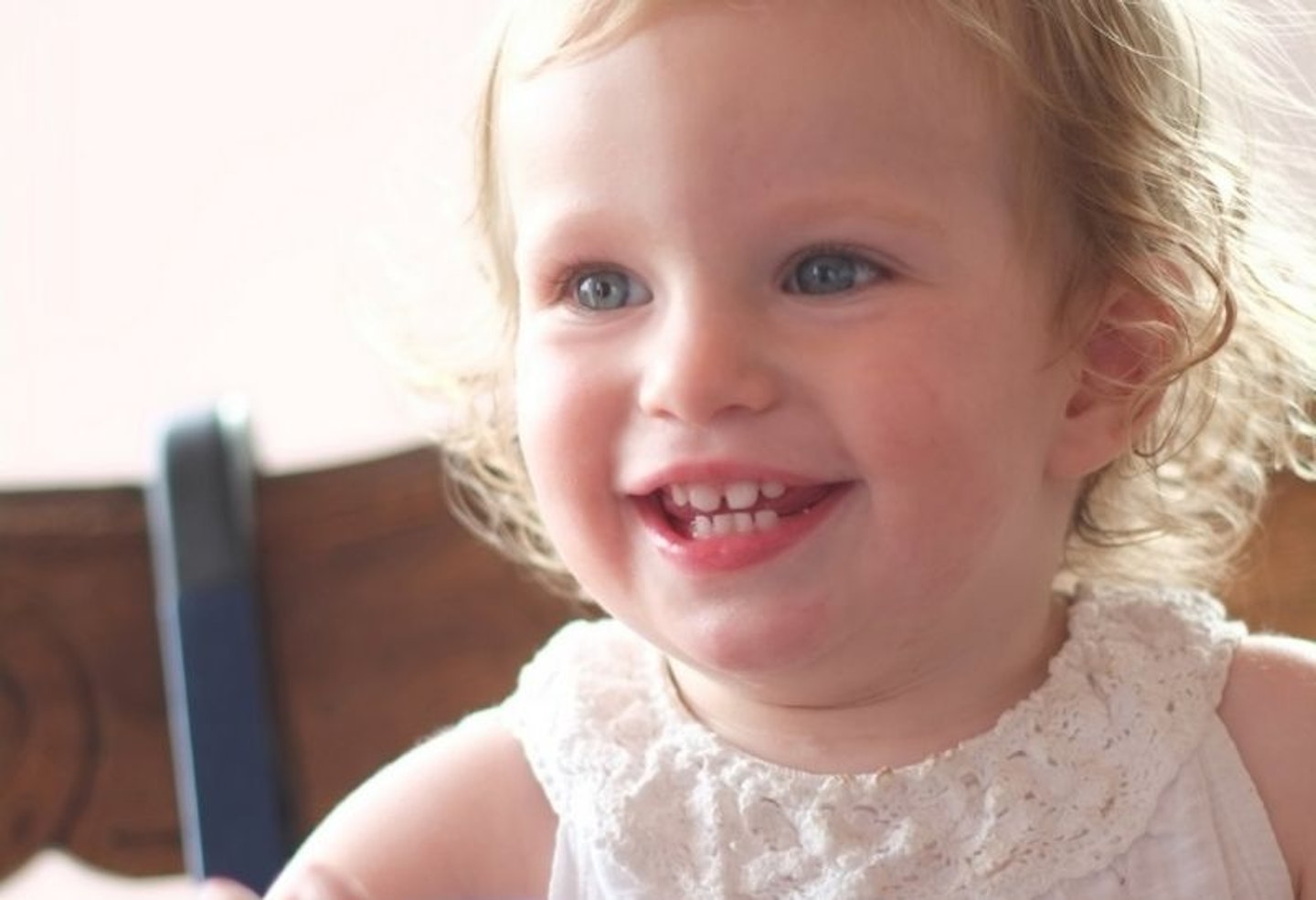 2 of 35
2 of 35Heat stroke
The warm weather may be a welcome change, but keep an eye on your baby or toddler to make sure they’re hydrated and protected. Read more about heat stroke here.
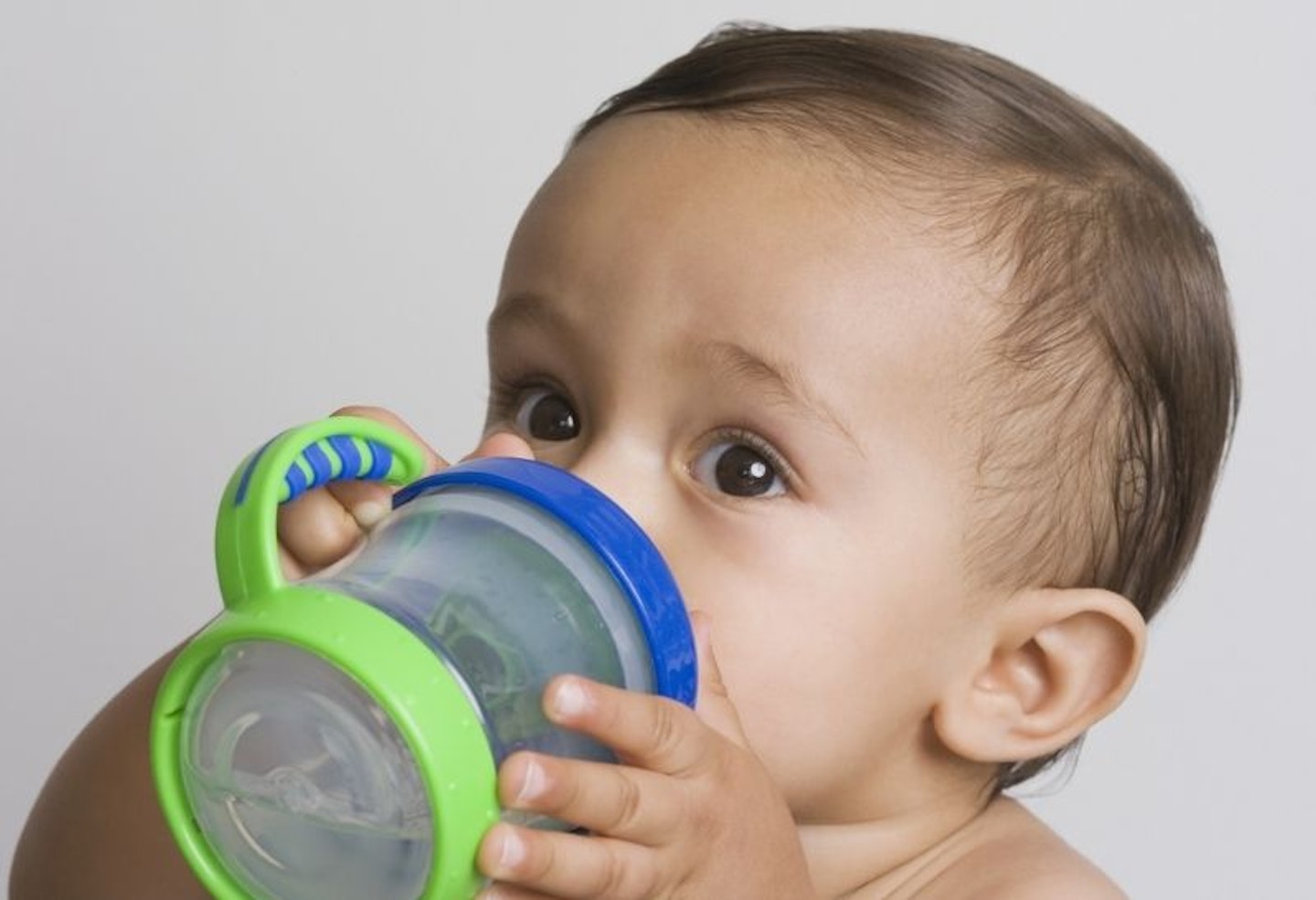 3 of 35
3 of 35Dehydration
Understand how much fluid your child needs – and how to cope when they aren't getting enough. Read more about dehydration here.
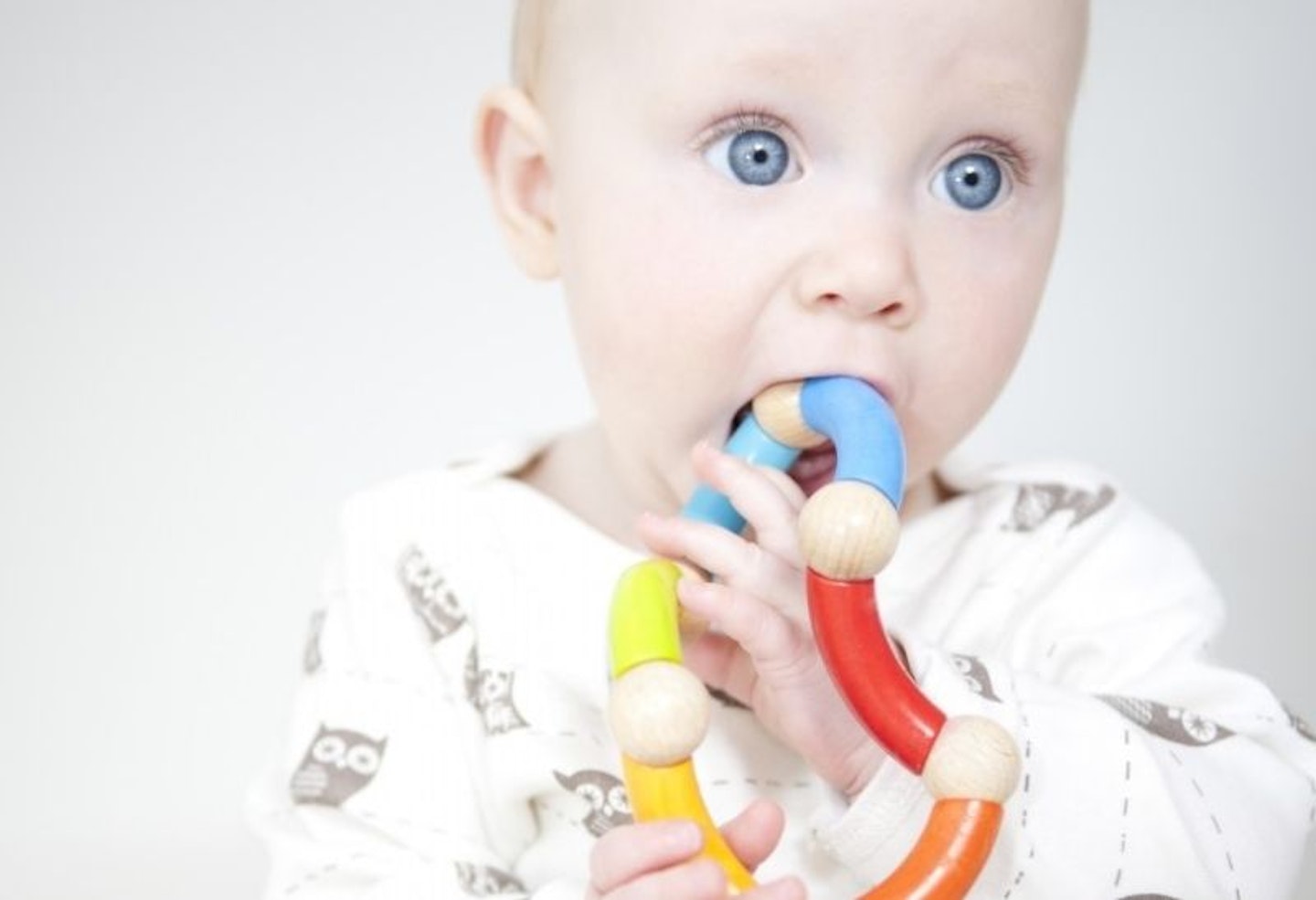 4 of 35
4 of 35Teething
While that little mouth filling with teeth is a big step towards eating solids and growing up, it does mean quite a lot of fuss and discomfort for both you and your baby. Read more about baby teething here.
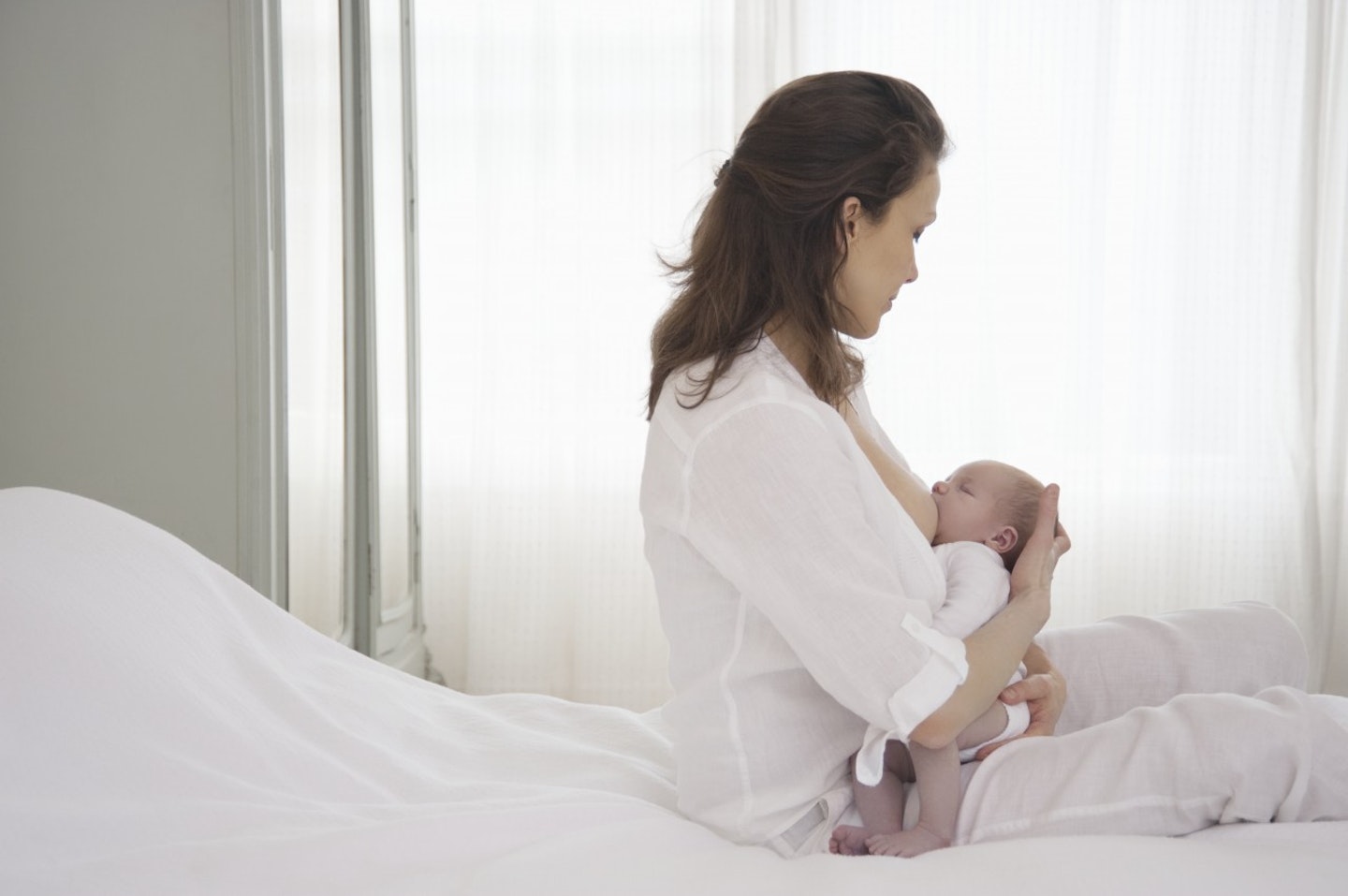 5 of 35
5 of 35Tongue-tie
While not overly common, tongue-tie can cause difficulties for babies, especially when it comes to feeding. Understand what it is and how it’s treated with our breakdown. Read more about tongue-tie here.
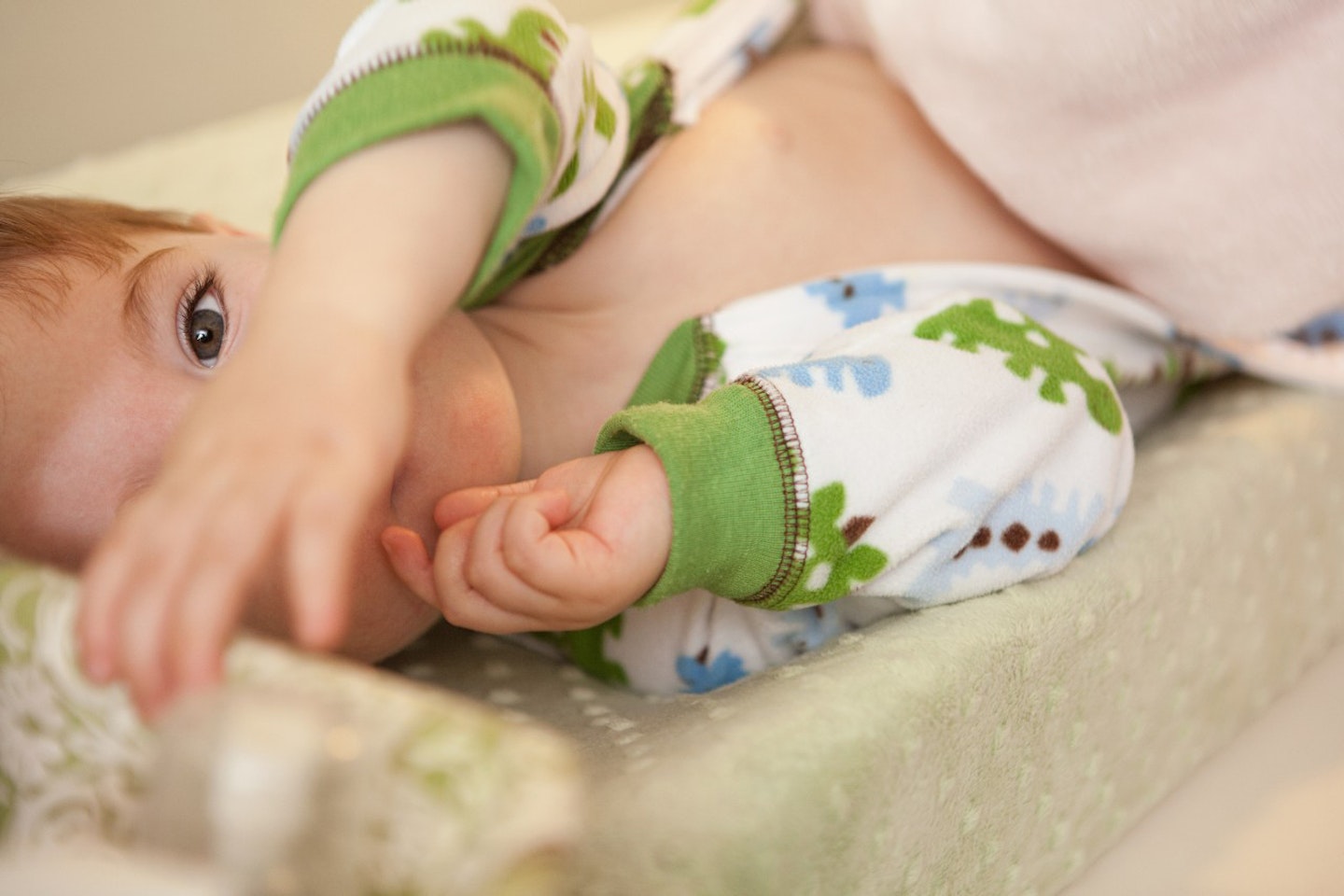 6 of 35
6 of 35Balanitis
Worried that your baby boy’s swollen penis could be something serious? Take a breath – it could just be balanitis, which displays clear symptoms and is easy to treat. Read more about balanitis here.
 7 of 35
7 of 35Threadworms
Your baby’s got what?! Threadworms are dreaded by parents, but they look (and sound) much worse than they really are. Plus, it’s easy to get rid of them. Read more about threadworms here.
 8 of 35
8 of 35Anaemia
Anaemia may not be a condition you’d normally associate with babies and toddlers, but it’s surprisingly common (and easily fixed). Read more about anaemia here.
 9 of 35
9 of 35Eczema
Eczema looks pretty painful and can lead to a grouchy baby. But there are ways to tackle this skin condition. Read more about here.
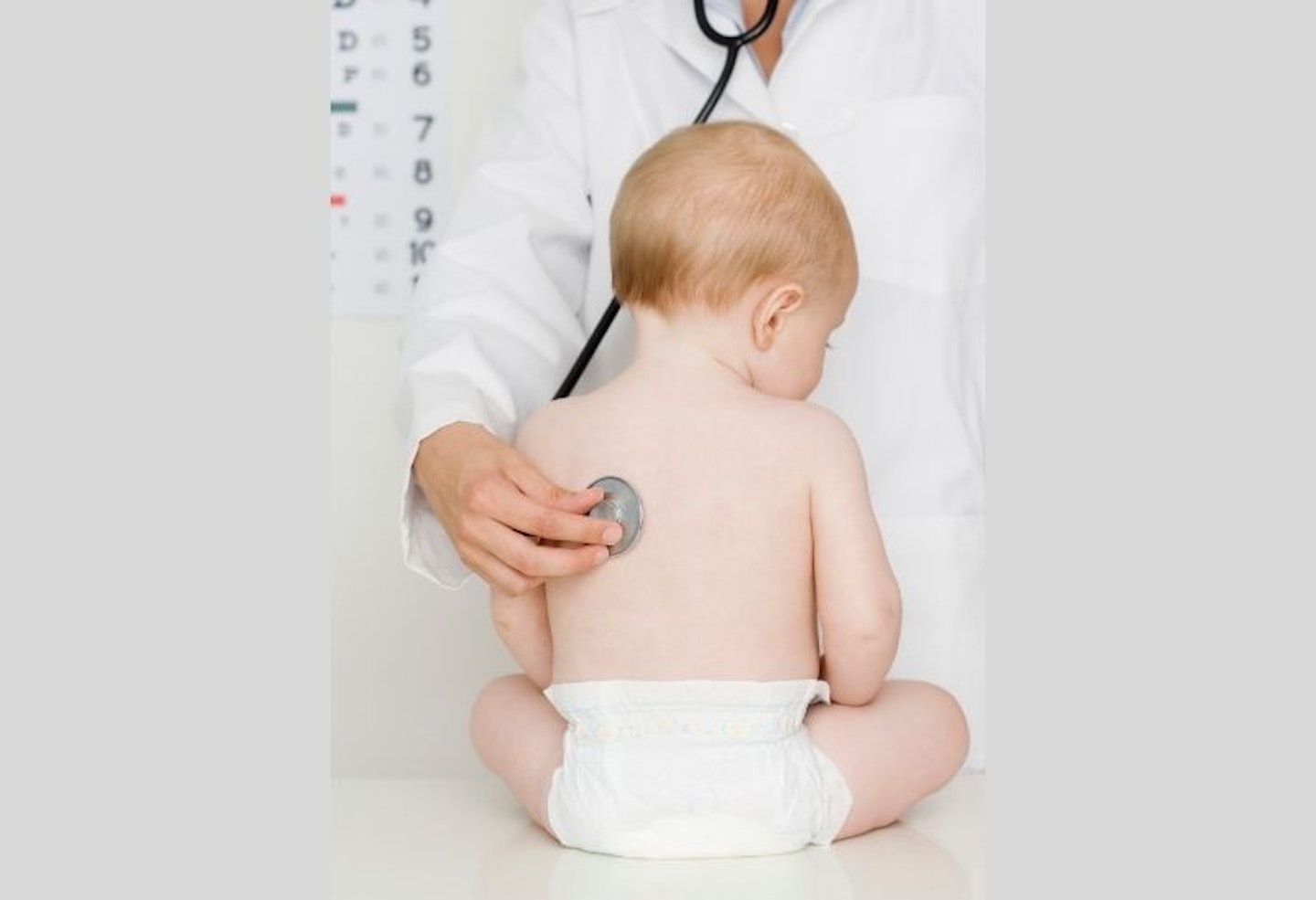 10 of 35
10 of 35Bronchiolitis
If your baby’s struggling to breathe and has a wheezy cough, they could have bronchiolitis. Read more about bronchiolitis here.
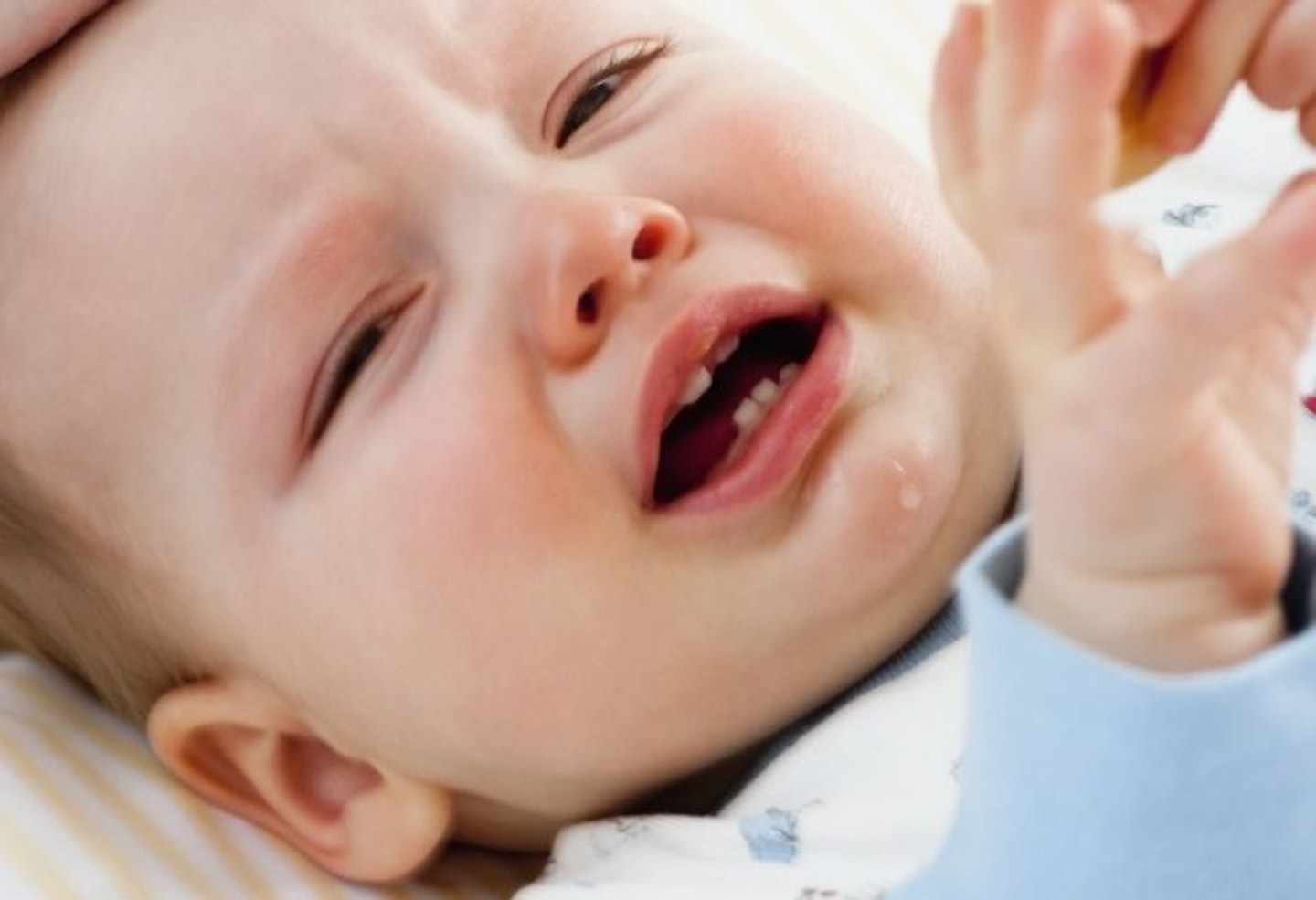 11 of 35
11 of 35Common cold
We all know how grotty a cold leaves us feeling and, joy oh joy, your baby’s really susceptible. Read more about the common cold here.
 12 of 35
12 of 35Gastroenteritis
If your baby's having tummy troubles, it could be a bout of gastroenteritis. Read more about gastroenteritis here.
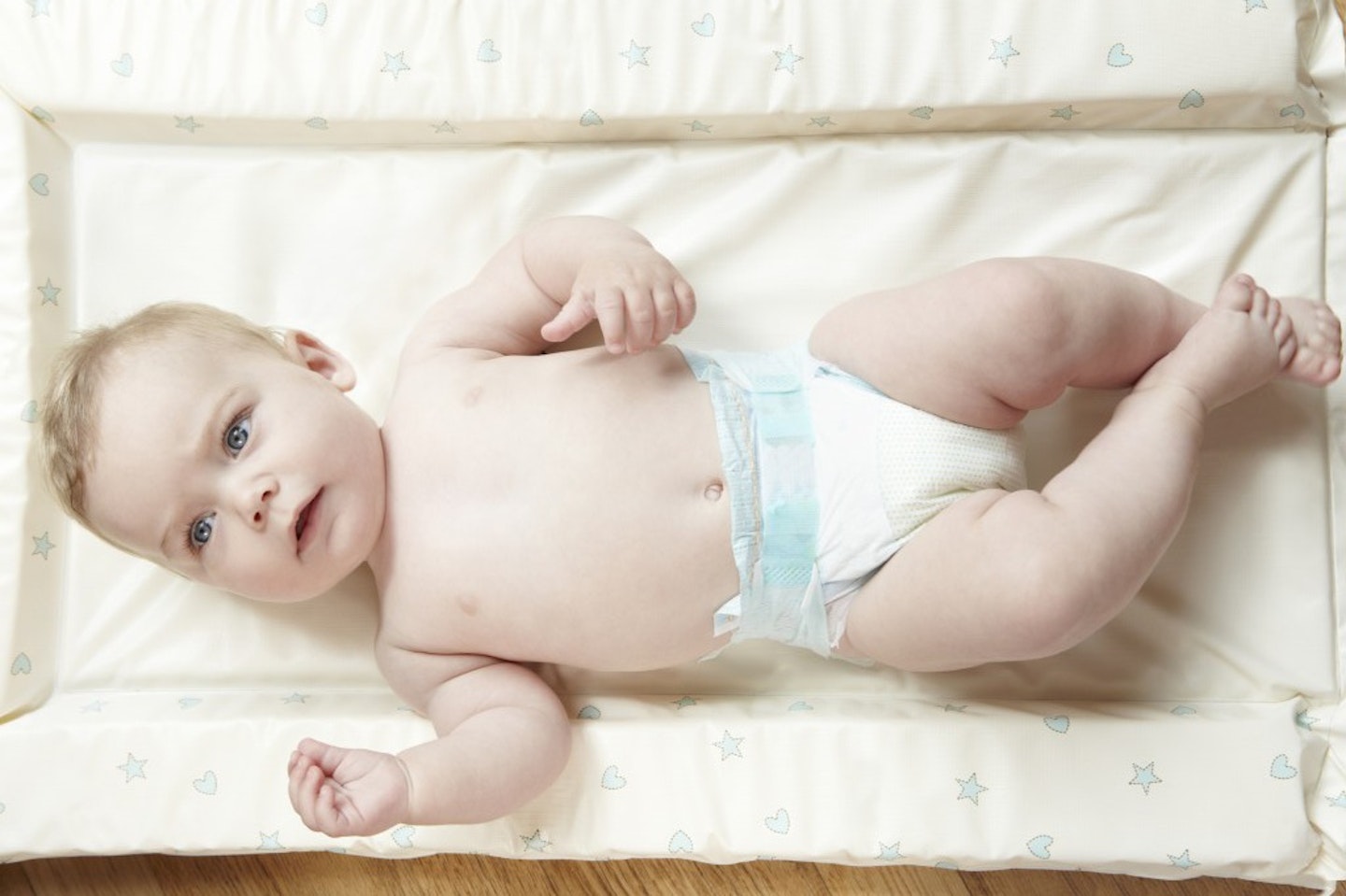 13 of 35
13 of 35Nappy rash
Nappy rash – if your baby gets this you’ll definitely know about it. But there are ways to soothe bubba's tears – and their bottom. Read more about nappy rash here.
 14 of 35
14 of 35Vomiting bug
It’s always difficult to get to the bottom of just what’s wrong when your child is sick. Work out the reason and treatment with our expert overview. Read more about the vomiting bug here.
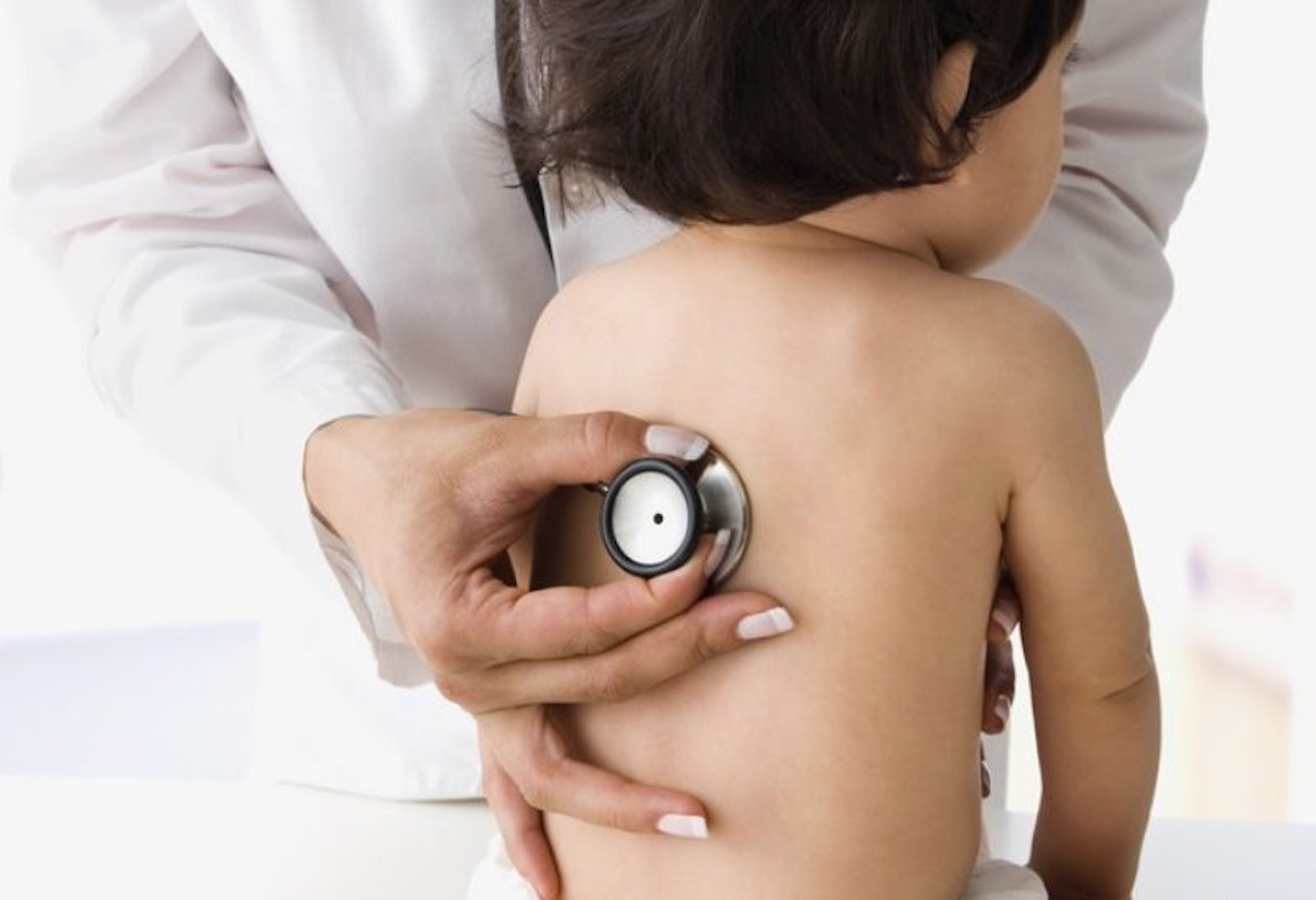 15 of 35
15 of 35Whooping cough
If it’s whooping cough your baby is suffering from, they're likely to have a persistent, dry cough which is hard to shift. But there are ways to offer them comfort. Read more about whooping cough the word you would like hyperlinked here.
 16 of 35
16 of 35Psoriasis
This red, flaky skin condition can occasionally flare up in babies and toddlers. The good news is there are treatments that will help. Read more about psoriasis here.
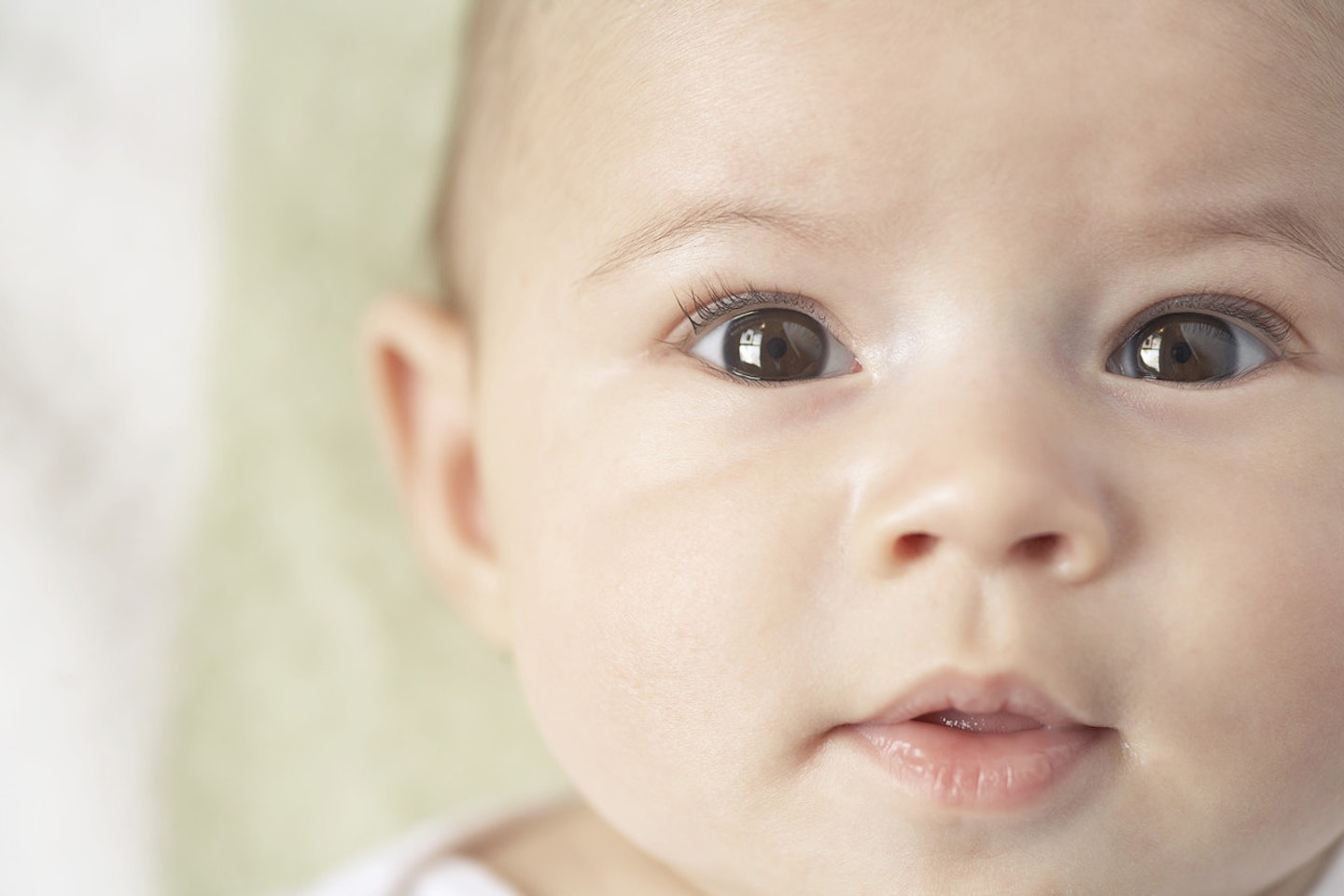 17 of 35
17 of 35Flat head syndrome
Try not to be alarmed if you notice a flat patch on your baby’s head – nine times out of 10 it will be flat head syndrome, which is really manageable and treats itself. It's a completely natural problem that affects a huge amount of babies and – most importantly – it doesn’t mean that you’ve missed a page of the parenting handbook. Read more about flat head syndrome here.
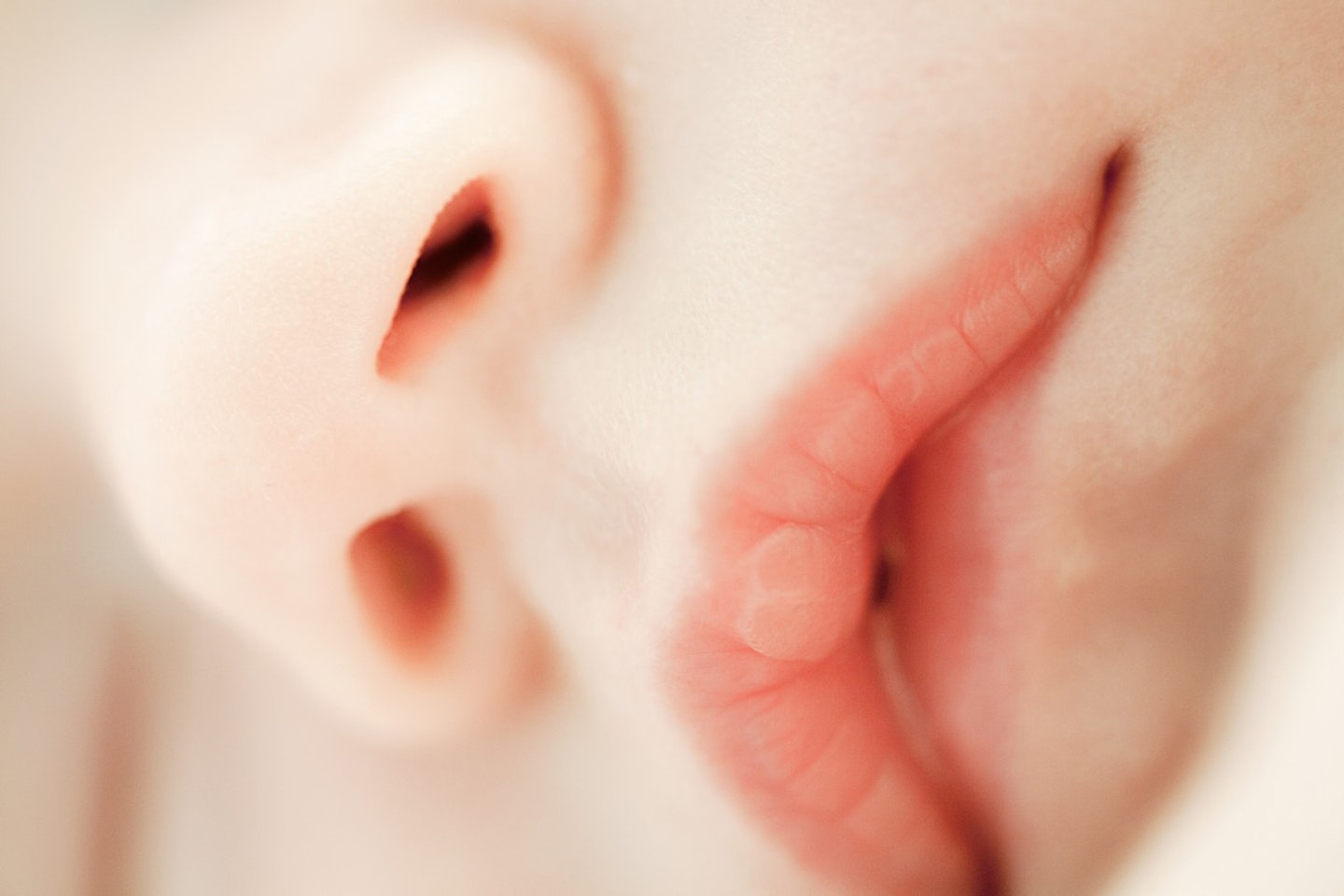 18 of 35
18 of 35Cleft lip and palate
A cleft lip might sound scary, but there is a lot of help and support available to ensure your child still lives a full and happy life. Read more about a cleft lip here.
 19 of 35
19 of 35Jaundice
Get to grips with jaundice, one of the most common illnesses to affect newborns: how long it lasts, why it makes your baby’s skin yellow and when you need to treat it. Read more about jaundice here.
 20 of 35
20 of 35Thrush
Spotted some patches inside your baby’s mouth that look like cottage cheese? It sounds like they have a common infant infection – thrush. Read more about thrush here.
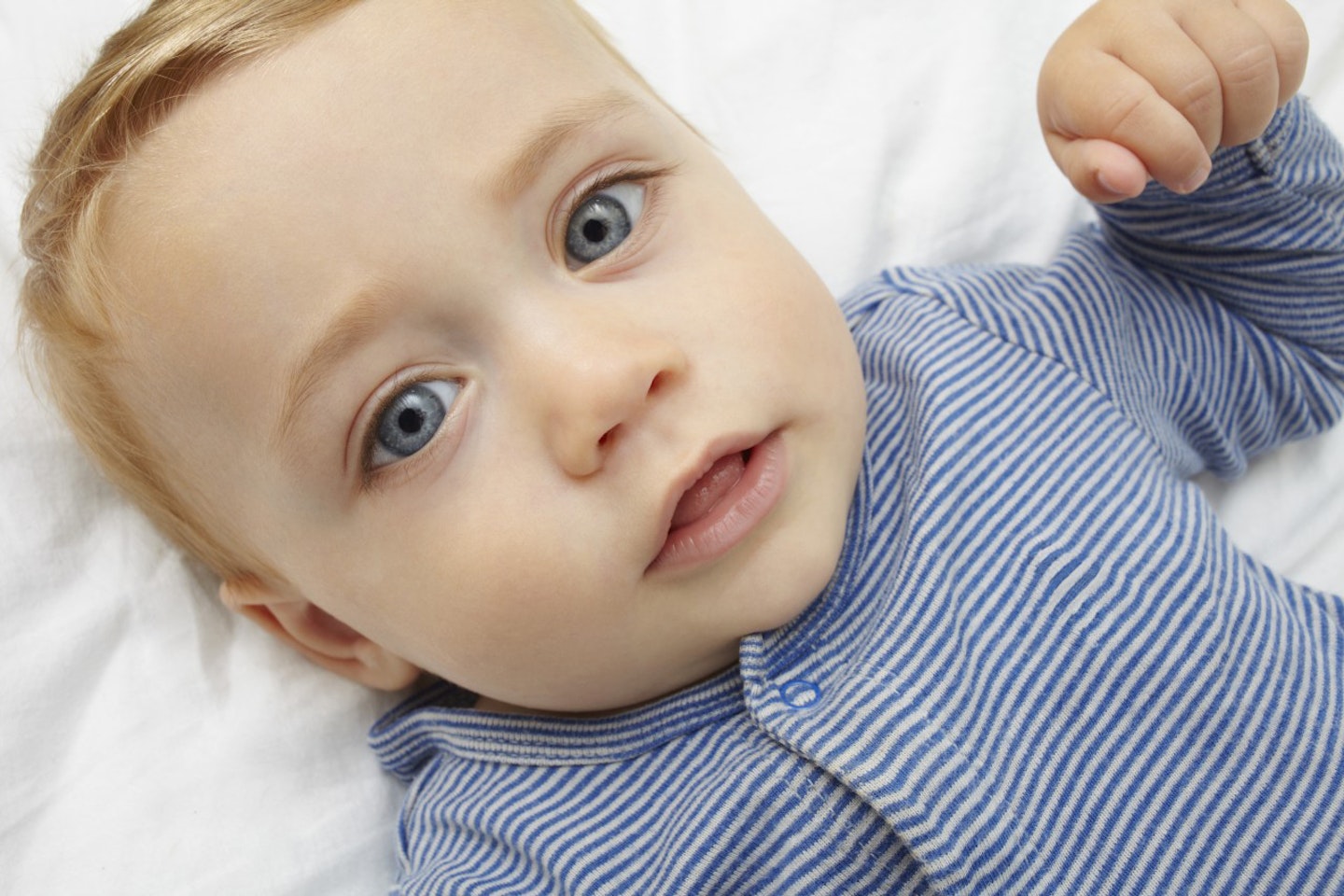 21 of 35
21 of 35Impetigo
Sores? Check. Blisters? Check. Itchiness? Check. It seems like your baby may have impetigo – which is very common and (irritatingly) contagious. But thankfully, very easy to manage. Read more about impetigo here.
 22 of 35
22 of 35Eye infections
It’s never nice to see your baby’s eyes all leaky and gunky from an infection, but they’ll soon be back to their usual beautiful best. Read more about eye infections here.
 23 of 35
23 of 35Rotavirus and diarrhoea
A common illness in babies, rotavirus can lead to stomach flu and become serious. Thankfully, it can be prevented and treated. Read more about rotavirus and diarrhoea here.
 24 of 35
24 of 35German measles (Rubella)
Is your baby covered in red spots, rashes or blotches? Does baby have swollen lymph nodes and a mild fever? Little one may have German measles, also known as rubella. Read more about German measles here.
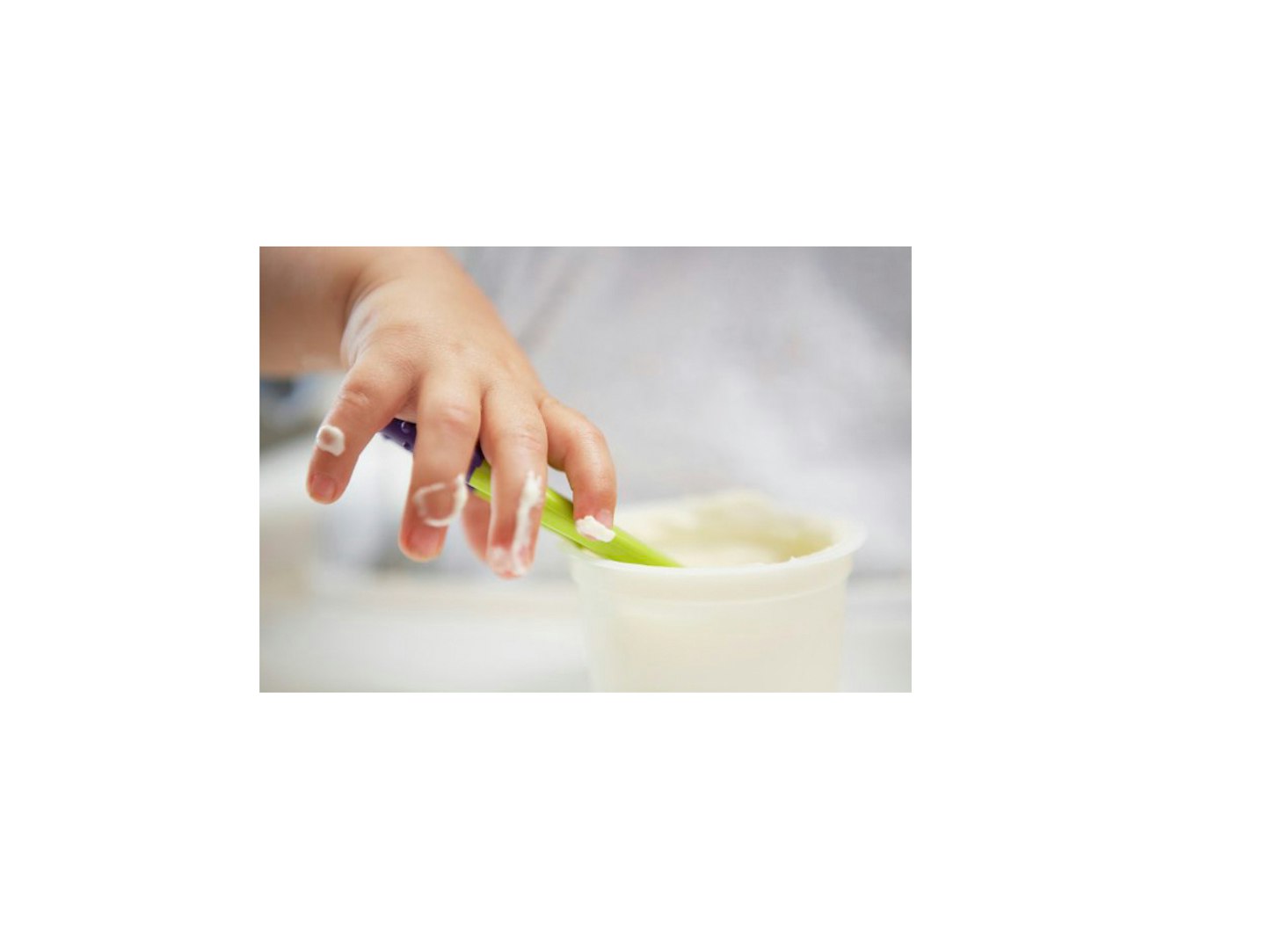 25 of 35
25 of 35Food allergies
Allergies in baby are common complaints which many grow out of eventually. Learn how to manage a food allergy in the meantime. Read more about food allergies here.
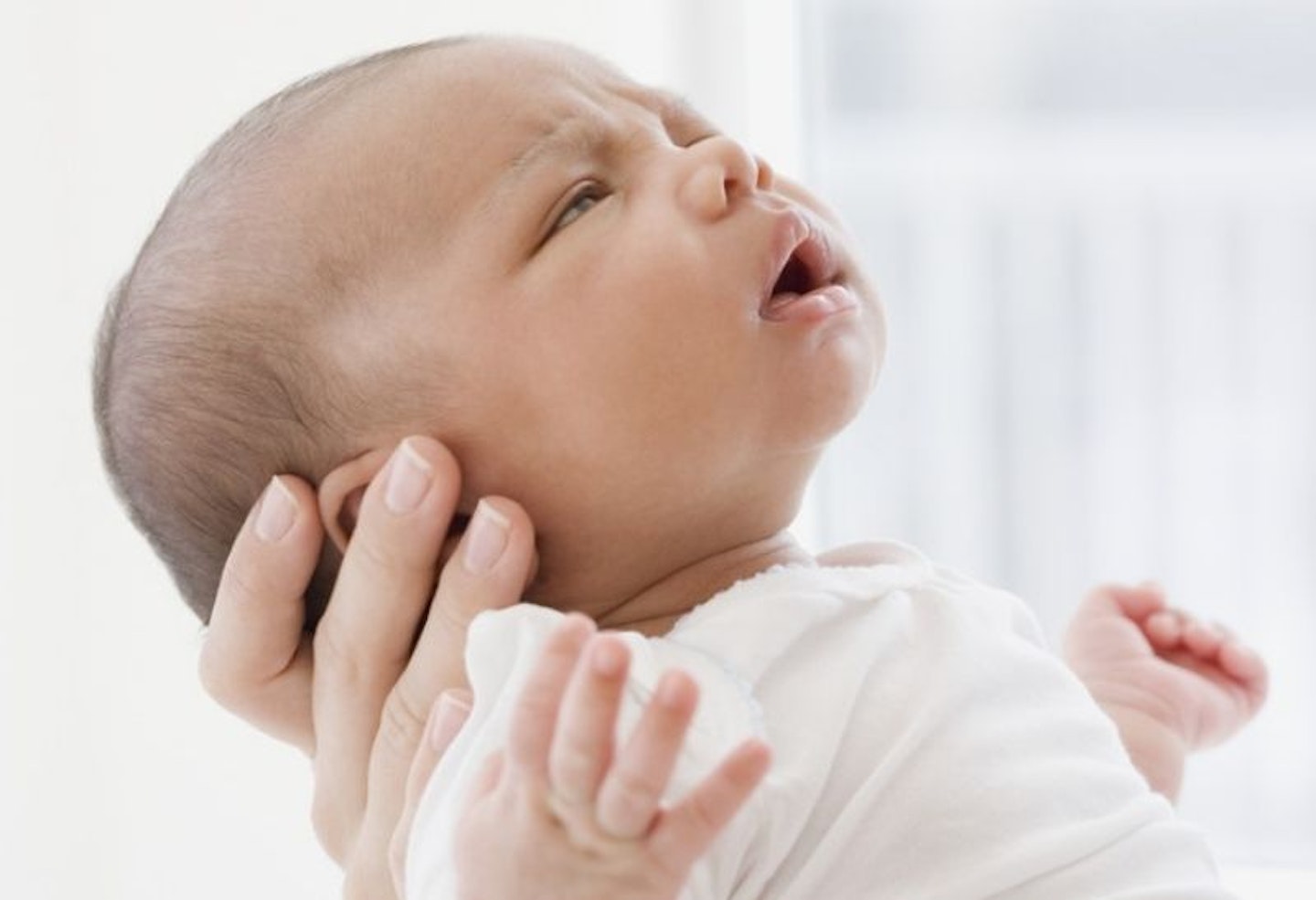 26 of 35
26 of 35Reflux
Does your baby keep vomiting up her milk? Welcome to the world of baby reflux – and the solutions you need to know about. Read more about reflux here.
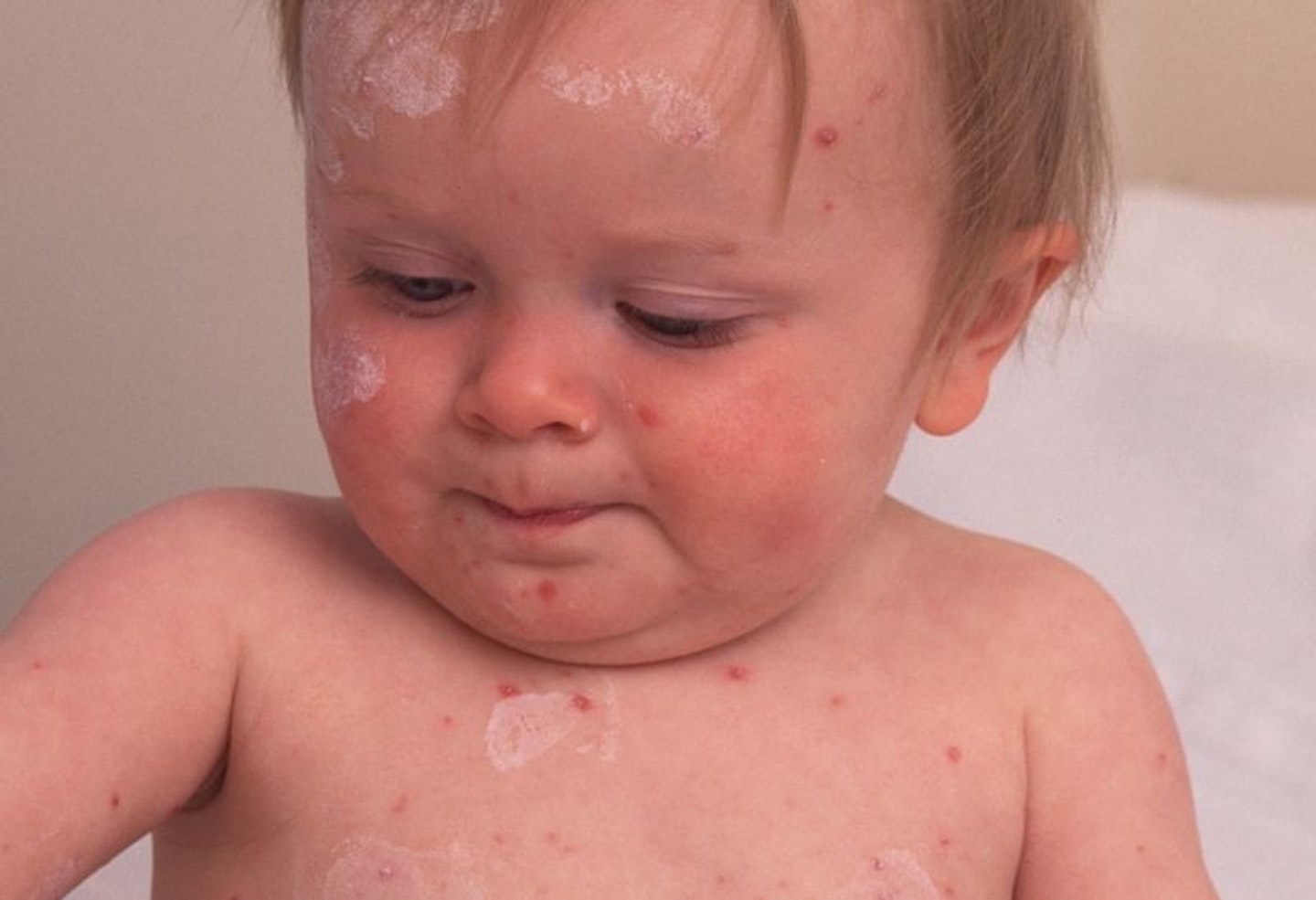 27 of 35
27 of 35Chickenpox
Worried it's chickenpox? Understand the causes, symptoms and treatment with our expert overview of the condition. Read more about chickenpox here.
 28 of 35
28 of 35Measles
Measles is remerging as a problem childhood infection. Spot the symptoms and get your child seen to as soon as possible. Read more about measles here.
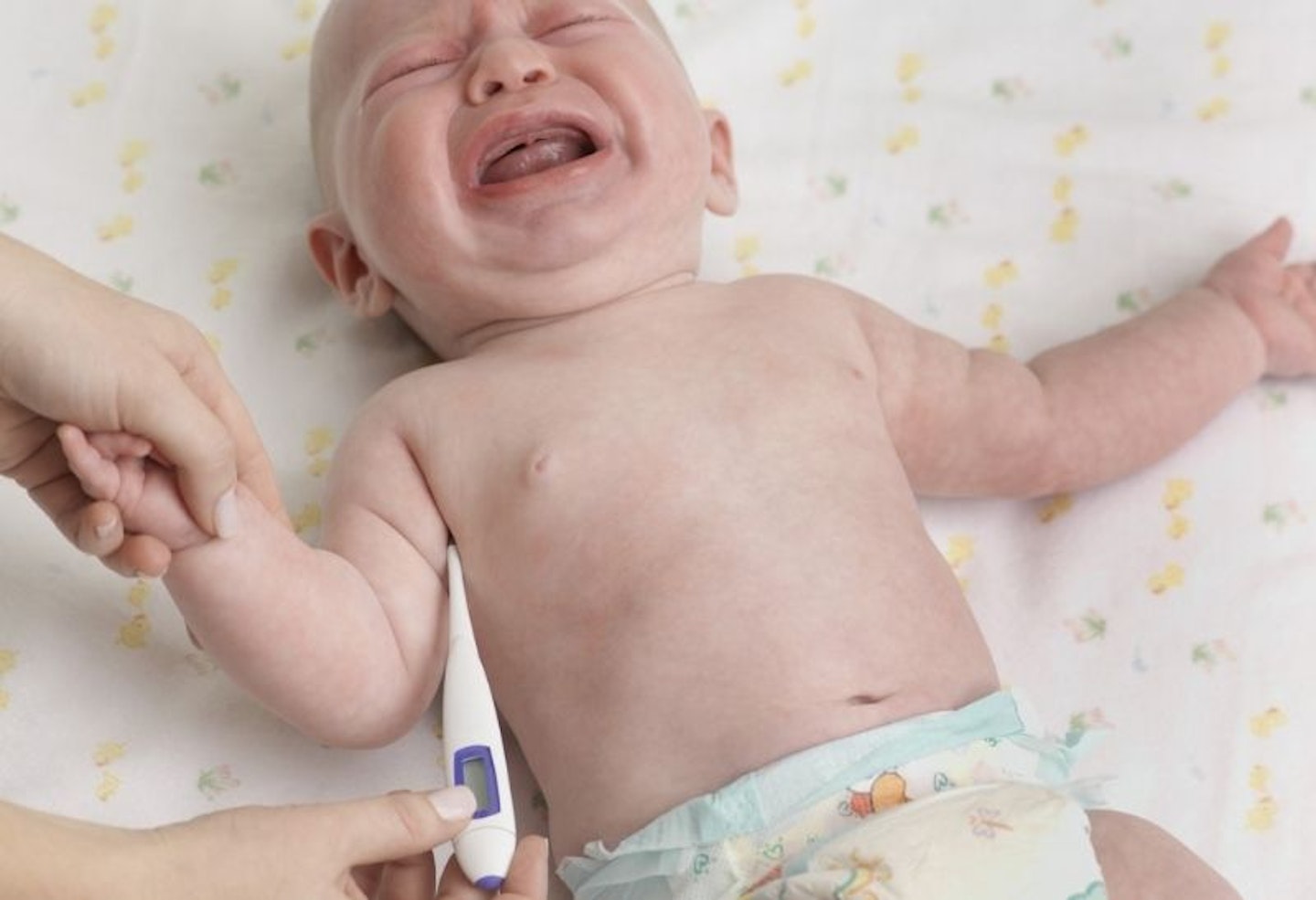 29 of 35
29 of 35Meningitis
Understand meningitis with our expert overview of the signs, causes and treatment. Read more about meningitis here.
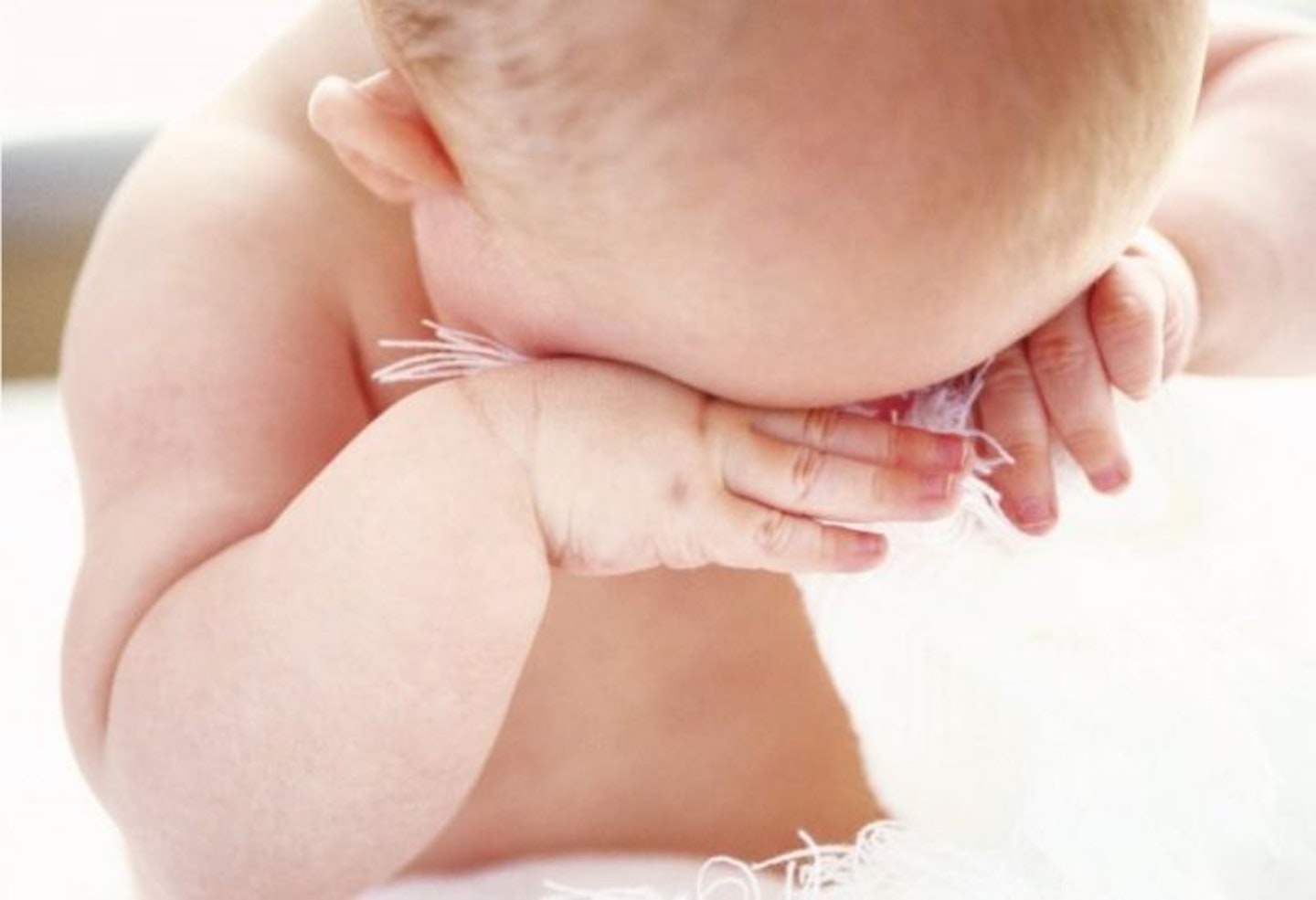 30 of 35
30 of 35Conjunctivitis
Sticky, red eyes and odd-coloured gunk – work out if your baby has conjunctivitis. Read more about conjunctivitis here.
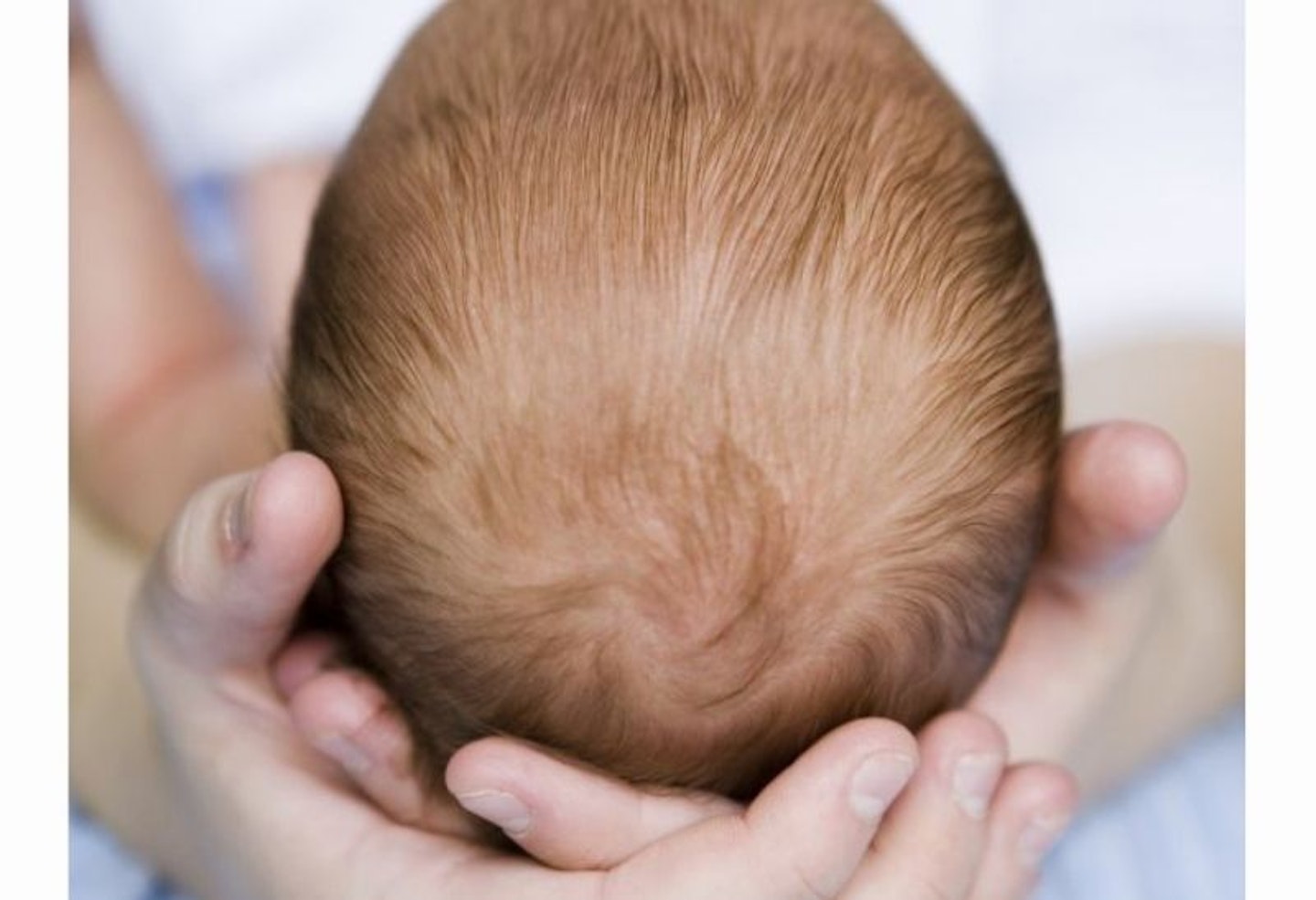 31 of 35
31 of 35Cradle cap
Cradle cap looks worse than it feels for your baby. But there are ways to help it clear up. Read more about cradle cap here.
 32 of 35
32 of 35Flu
If that stuffiness and low mood is due to flu, there are ways to give your baby their very own duvet day. Read more about flu here.
 33 of 35
33 of 35Heat rash
Yes, it’s normal to feel anxious when you spot a rash on your baby – and if you're worried or your baby seems unwell, you should see your GP – but it could just be caused by him getting too warm. Read more about heat rash here.
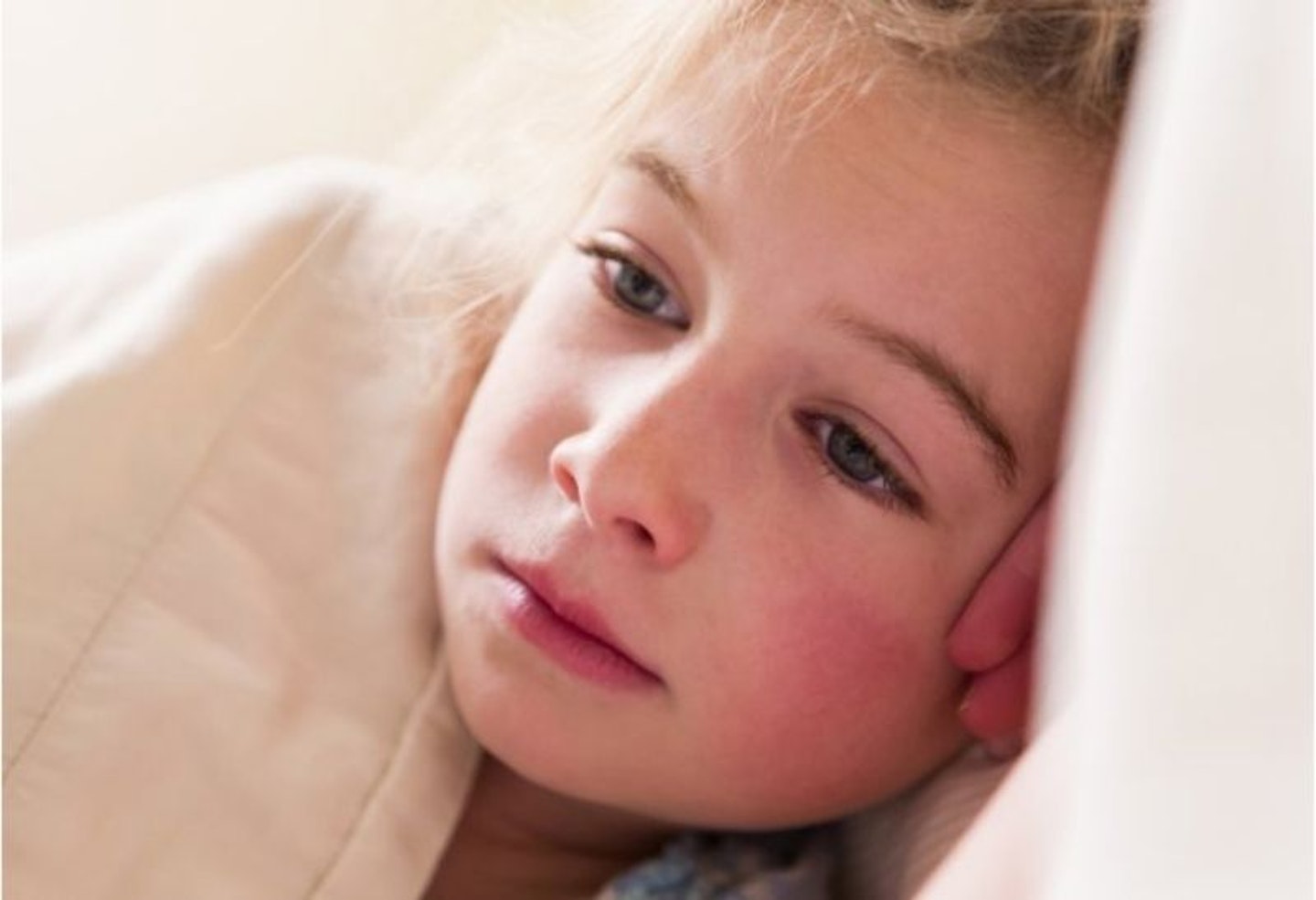 34 of 35
34 of 35Scarlet fever
While still considered quite a rare illness, cases of scarlet fever have risen recently, so here’s what you need to know if you spot it. Read more about scarlet fever here.
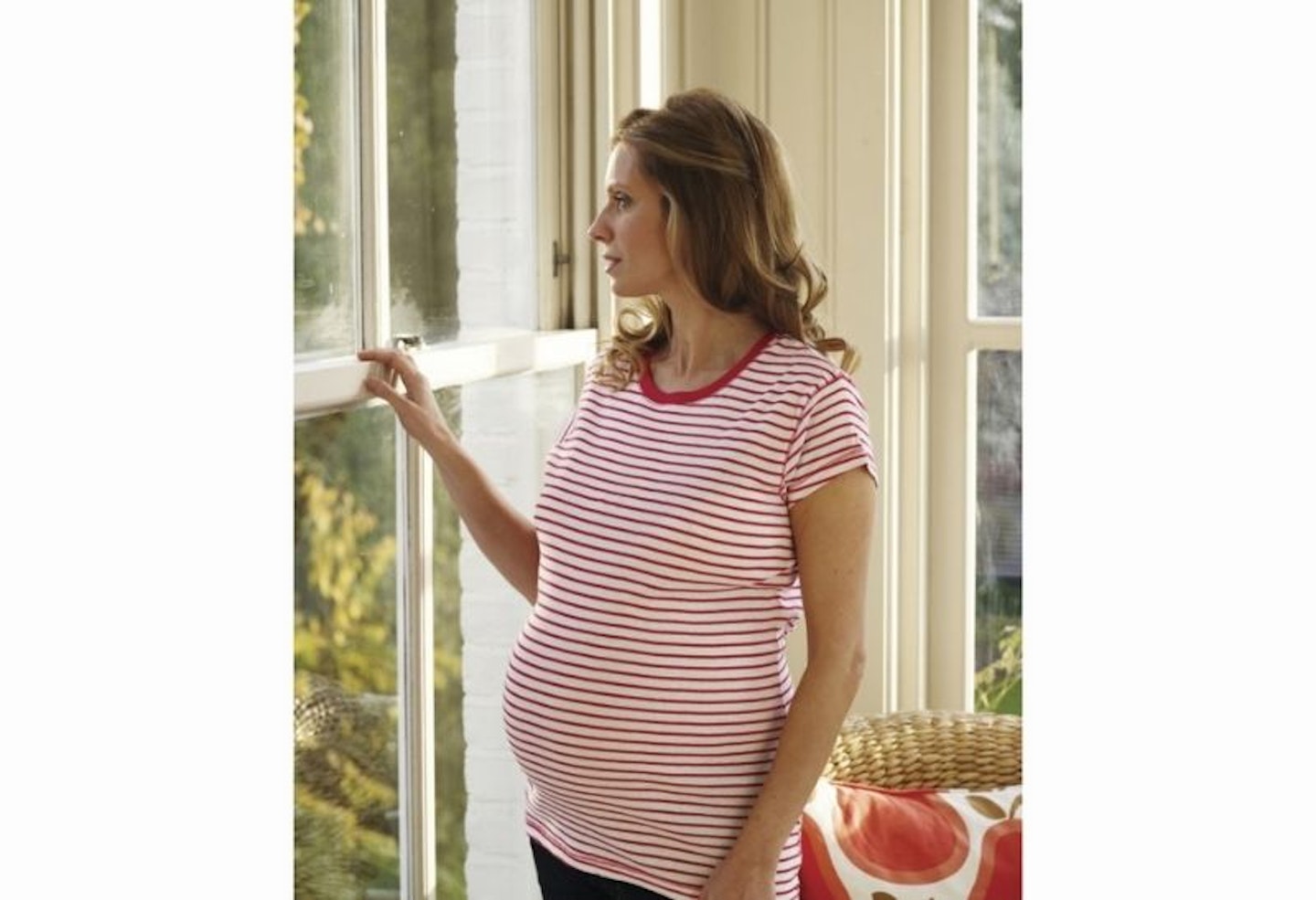 35 of 35
35 of 35Spina bifida
Spina bifida sounds terrifying, but there are a whole range of treatments and management options available to help your baby bloom and flourish while living with the condition. Read more about spina bifida here.
